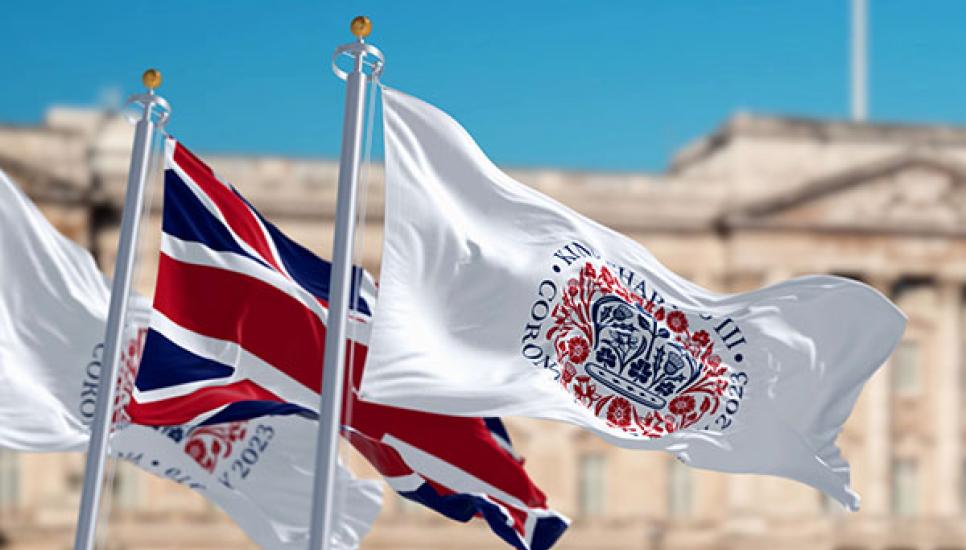How King Charles III is expected to shake up the Royal Family 'Firm'

As we approach the King’s Coronation, stamps, money and the National Anthem won’t be the only things altering. After 70 years of steadfast navigation and necessary adaptation from Queen Elizabeth II, King Charles III’s reign is expected to bring with it transformative change that will fundamentally rewrite how the Royal Family operates.
Sometimes referred to as “The Firm” (a term that originated with George VI), the Family operates as a politically and commercially independent unit with a multitude of public roles and responsibilities. Traditionally, this has required many senior and mid-level Royals to muck in with duties. However, in the wake of a variety of scandals, public spats and press involvement, there is a shortage of senior royal family members to cover the increasing number of patronages and engagements.
Instead of fast-tracking the Next Gen, however, and aware of the difficult financial circumstances many people find themselves in, King Charles reportedly wants to employ fewer family members as official royals in the future.

“He feels people's pain. He's been around the nation. So that streamlining and slimming down is because he recognises the cost,” said royal commentator Hilary Fordwich in an interview with Scripps News, referring to UK taxpayers having paid more than $95 million into the monarchy's Sovereign Grant in 2022.
Despite the fact that the Royals are considered to be cultural icons who bring in an estimated $2 billion to the UK economy annually through tourism, The King recognises that these are austere times and his family should lead by example.
However, like his mother before him, the King also accepts that the Monarchy cannot be run by one single person. “My life will of course change as I take up my new responsibilities,” he said in his first address as King. “It will no longer be possible for me to give so much of my time and energies to the charities and issues for which I care so deeply. But I know this important work will go on in the trusted hands of others.”
“The family has to manage this like a brand transition,” said Pauline Maclaran, professor of consumer research at Royal Holloway, University of London, in an interview with The LA Times. “If Charles becomes the only face of the monarchy, he will not get the support he needs. So they will bring [Prince] William and [Princess] Kate into the forefront more and more, as well as the young royals such as [their son Prince] George.”

Already forced to eschew The Queen’s unofficial motto of “Never complain, never explain” when obligated to respond to his son Harry’s comments in print and on air, The King has nevertheless forged ahead behind the scenes with a quiet reshape of the royal household, focusing on bringing what some consider to be an outdated system up to date with major staff restructuring and streamlined efficiencies that reflect the former Prince of Wales’ preferences – also known as the “Clarence House way”.
Part of this restructuring is expected to include significant belt tightening around The Duchy of Lancaster, the property and assets portfolio held in trust for the sovereign that covers expenses and costs incurred by the Royal Family while on official business. This is also expected to represent a cutback on access to Royal accommodation: “The King is not some sort of housing association,” a senior figure reportedly said to The Evening Standard. “A lot of practices that have evolved over time will be changing. The King is not heartless, but for family members who are not part of the core family working for the crown, it is fair for them to house themselves.”
Charles, at 74 our oldest king to ever be crowned, also recognises that his rule will be naturally be significantly shorter than his mother’s and, as such, is working closely with William, the Prince of Wales, on making the monarchy fit for purpose for the future.

“[The King] will now move quickly and decisively, to reform how the Royal Family works,” said University of Calgary history professor John Ferris. “And he will aim to give William, in five to 15 years, a strong position to keep the Royal Family relevant. Charles will not abdicate, but he knows his age and he will be planning how to shape his succession through his actions.”
Considering both The Queen and The Duke of Edinburgh lived well into their Nineties, there’s no expectation that King Charles’ reign will be especially short, but the fact that the next succession conversation is already happening is indicative of the new Monarch’s forward-thinking approach.
“He’ll keep the Queen’s traditions, the protocols and the etiquette,” said The King’s former butler Grant Harrold in an interview with The Express. “We’ll then see William bring in his modern approach and for Charles, it’ll be a mixture of both. We’ll see a King that is traditional but a little bit of a modernist too.
“That tradition he will pass on to William and while William will be a very modernistic monarch, almost celebrity-like, he’ll still have elements of the old tradition and etiquette and that’ll be thanks to his father and his grandmother.”






